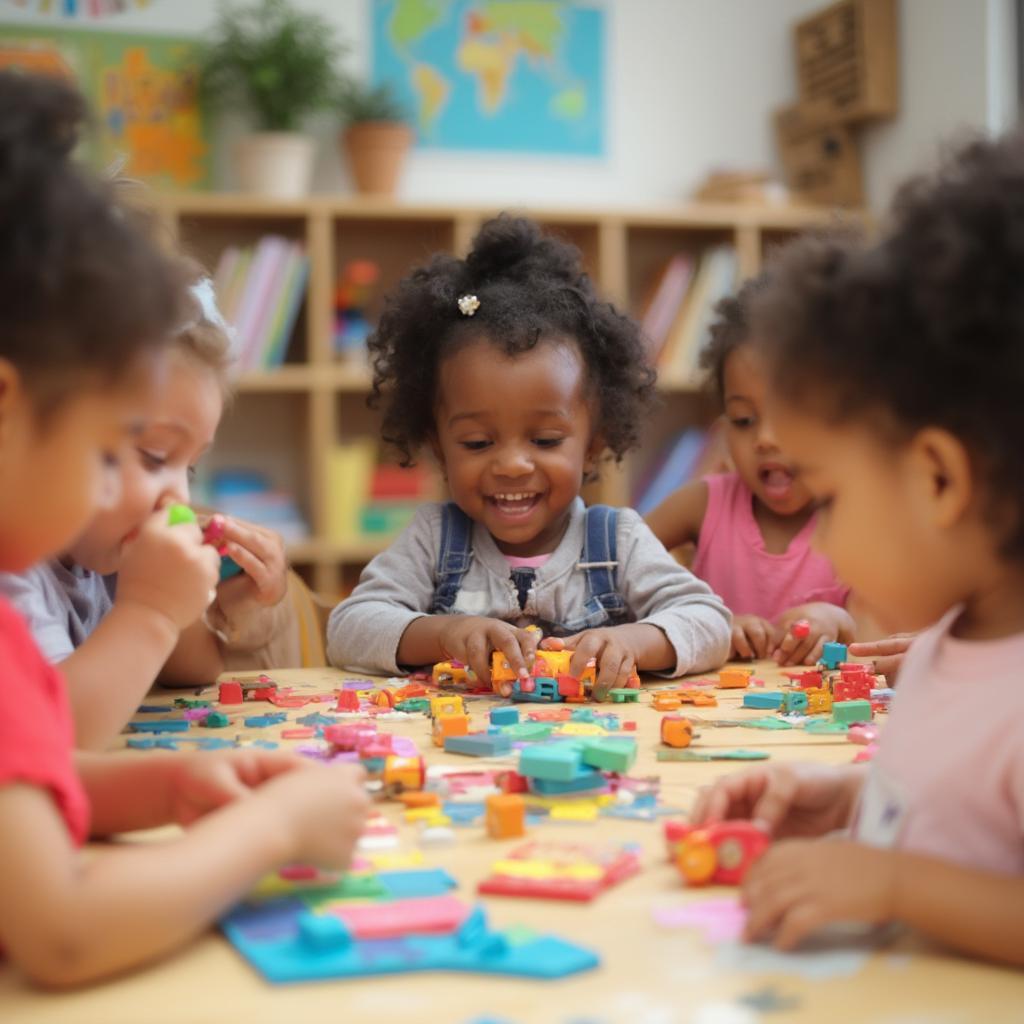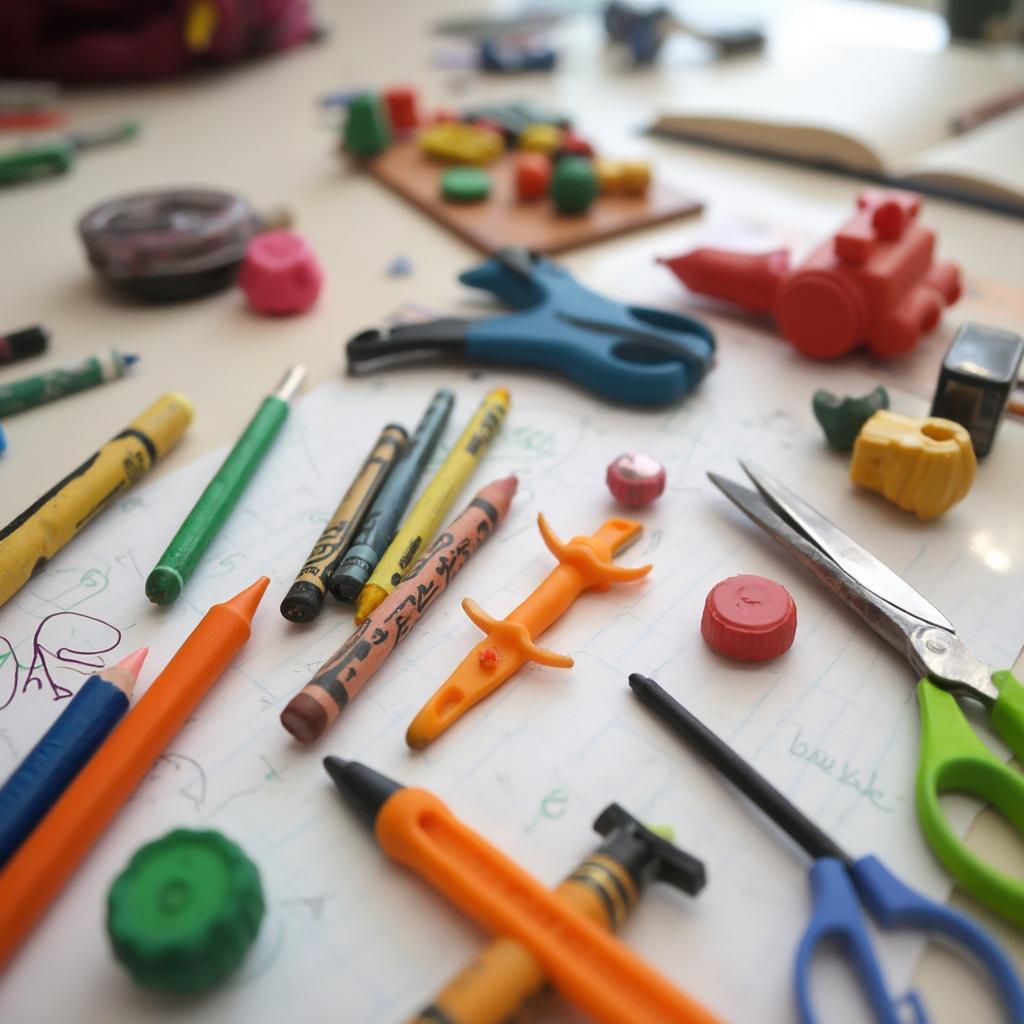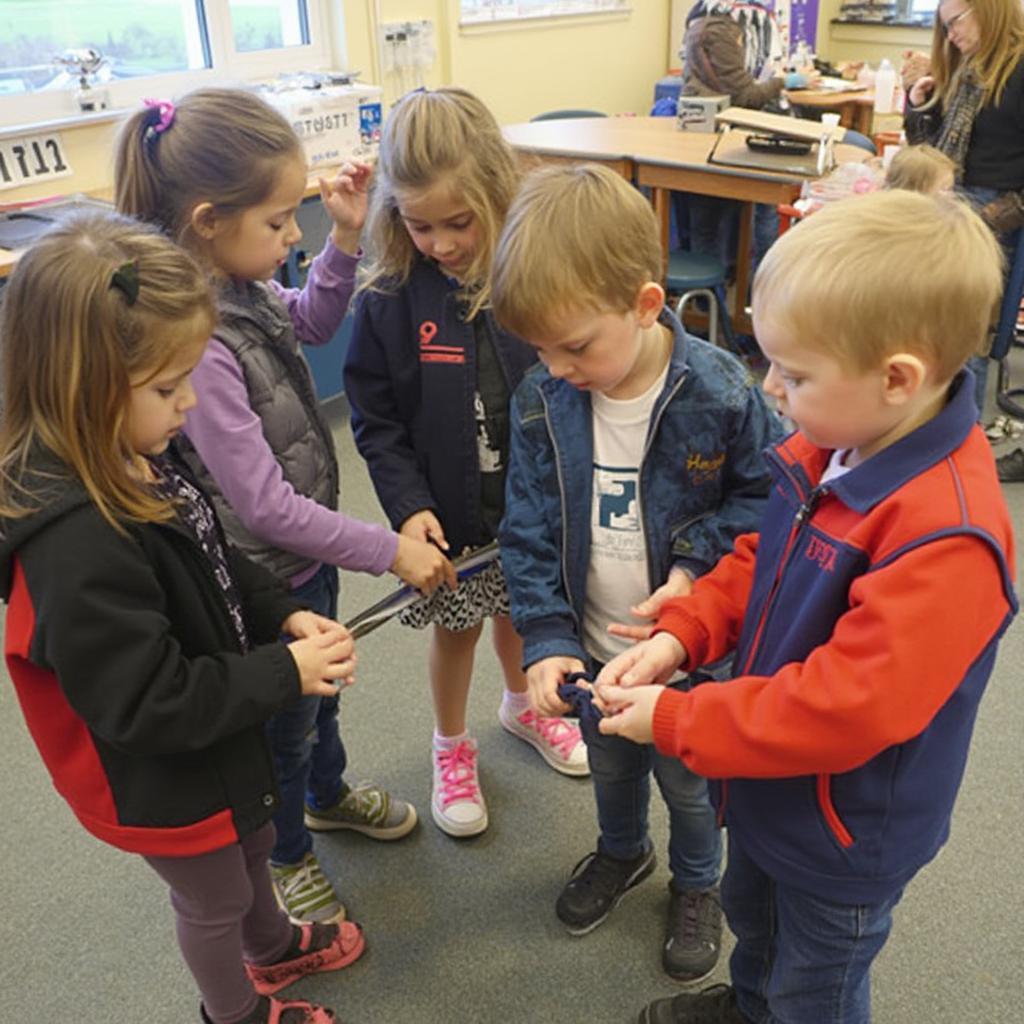Your cart is currently empty!

Inclusive Child Care Org Tip Sheet for Fine Motor Skills
Developing fine motor skills is crucial for young children, impacting their ability to perform everyday tasks and succeed academically. This inclusive child care org tip sheet provides practical strategies for fostering fine motor development in diverse learning environments.
Understanding Fine Motor Skills in Inclusive Child Care
Fine motor skills involve the small muscles in the hands and wrists, enabling children to manipulate objects, write, draw, and perform self-care tasks. In inclusive child care settings, recognizing the diverse needs and abilities of each child is paramount. Some children may require adapted tools or activities to fully participate and develop their fine motor skills.
Practical Tips for Enhancing Fine Motor Development
This section offers actionable strategies for incorporating fine motor skill development into daily routines within inclusive child care environments.
Playful Activities for Fine Motor Skill Development
- Puzzles: Puzzles are a fun way to improve hand-eye coordination and problem-solving skills while strengthening finger muscles. Choose puzzles with large pieces for younger children and gradually introduce more complex designs.
- Building Blocks: From stacking simple blocks to creating elaborate structures, building activities promote spatial reasoning and fine motor control. Offer a variety of block sizes and shapes to challenge children’s dexterity.
- Art Projects: Engage children in art activities that involve various fine motor movements. Painting, drawing, sculpting with clay, and using playdough all contribute to developing hand strength and precision.
 Children engaging in fine motor activities like playdough, blocks and puzzles
Children engaging in fine motor activities like playdough, blocks and puzzles
Adapting Activities for Diverse Learners
- Adaptive Tools: For children with physical limitations, consider providing adaptive tools like chunky crayons, large-handled scissors, or specialized grips for writing utensils.
- Modified Activities: Modify existing activities to accommodate different skill levels. For example, cutting thicker paper or using larger beads for stringing can make tasks more manageable for some children.
- Individualized Support: Observe each child’s progress and provide individualized support as needed. Offer verbal encouragement, demonstrate proper techniques, and break down complex tasks into smaller, achievable steps.
 Adaptive tools like chunky crayons, large handled scissors, and specialized grips
Adaptive tools like chunky crayons, large handled scissors, and specialized grips
Integrating Fine Motor Practice into Everyday Routines
- Self-Care Tasks: Encourage children to participate in self-care activities like buttoning their clothes, zipping up jackets, and tying shoelaces. These everyday tasks provide valuable opportunities to refine fine motor skills.
- Mealtimes: Using child-sized utensils, pouring liquids, and spreading toppings are all practical ways to incorporate fine motor practice into mealtimes.
- Cleanup Time: Picking up toys, putting away materials, and wiping tables are simple yet effective ways to engage fine motor skills during cleanup time.
“Providing opportunities for children to develop fine motor skills through play and everyday routines is essential for their overall development,” says Dr. Amelia Carter, a leading child development specialist. “In inclusive settings, it’s important to tailor activities and provide appropriate support to ensure that all children can participate and thrive.”
 Children buttoning shirts, zipping jackets, and tying shoes
Children buttoning shirts, zipping jackets, and tying shoes
Conclusion
Promoting fine motor skill development in inclusive child care settings requires a thoughtful and adaptable approach. By implementing these practical tips and adapting activities to meet individual needs, caregivers can create a nurturing environment that fosters the growth and success of every child. Utilizing inclusive child care org tip sheets like this one can significantly impact a child’s ability to engage with the world around them.
FAQs
- What are some signs of fine motor skill delays?
- How can I adapt fine motor activities for children with disabilities?
- What are the benefits of developing fine motor skills?
- How can I encourage fine motor skill development at home?
- What resources are available for children with fine motor skill challenges?
- How can I incorporate fine motor skills into daily routines?
- What are some common fine motor milestones for preschoolers?
Need further assistance? Contact us via WhatsApp: +1(641)206-8880, Email: [email protected] or visit us at 456 Pine Avenue, Toronto, ON M5V 2J4, Canada. We have a 24/7 customer service team.

Leave a Reply